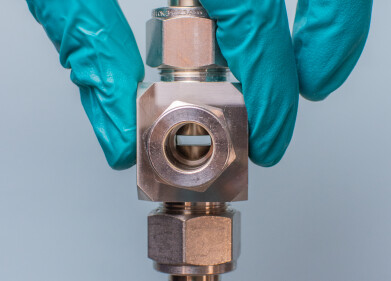Mass Spectrometry & Spectroscopy
Is There a Vaccine for STIs?
Sep 16 2019
In a breakthrough that could stem the 131 million new chlamydia infections diagnosed every year worldwide, a team of researchers from the University of North Carolina School of Medicine has developed a vaccine that could successfully protect men and women against the common STI. The findings were published in the Lancet Infectious Diseases journal, with the researchers reporting promising results following an initial human clinical trial.
New chlamydia vaccine offers "promising results"
The human trial involved around 36 healthy women. Some were assigned one of two versions of a new chlamydia vaccine developed by researchers at the University of North Carolina School of Medicine, with others given a placebo treatment. As well as being safe, both chlamydia vaccines triggered an immune response that wasn’t present in the placebo group.
“These promising results provide encouragement,” says Toni Darville, co-author of the study and paediatric infectious disease specialist at the University of North Carolina School of Medicine.
Combating global STIs
Chlamydia is one of the most common sexually transmitted diseases in the world, with more than 130 million women and men diagnosed with new infections every year. In North America alone, the US Centres for Disease Control and Prevention reports there are around 1.7 million new cases of chlamydia reported annually. Experts warn the real figures could be much higher as many cases of chlamydia go unreported.
The infection is caused by the bacterium Chlamydia trachomatis and can lead to serious health complications for women, including chronic pain and infertility. While antibiotics can effectively fight off a chlamydia infection, if left untreated the disease can target the cervix and spread to the uterus and fallopian tubes. For around one in six women, this can lead to pelvic inflammatory disease and infertility. Darville asserts a successful vaccine could have an enormously positive impact on public health, not just in the United States but around the world.
While Darville explains “the percentage of women who develop these long-term complications is relatively low,” she asserts the high number of overall chlamydia infections means that chronic pelvic pain and infertility do affect “a significant number of women.”
Triggering a strong immune response
In the report, Darville and her team outline the challenged of developing a vaccine against Chlamydia trachomatis. When infecting the body, chlamydia microbes penetrate cells lining the reproductive organs. To combat the infection the vaccine needs to trigger a strong immune response and release proteins and cells to clear bacteria from infected cells, as well as create antibodies to fight bacteria outside of cells.
Both versions of the chlamydia vaccine used in the clinical trial elicited a strong immune response powered by antibodies and T cells, with one of the versions producing excellent results. The next step is to trial the vaccine on volunteers who are at risk of contracting chlamydia. If the vaccine passes the tests and is approved for human use, it could be used to inoculate children at the age of 11 or 12, similar to the HPV vaccine.
New technologies and methods play a critical role in supporting research in modern laboratories. Offering expert commentary from Hiden Analytical, 'What is a Differential Electrochemical Mass Spectrometer?' offer new insights into the electrochemical behaviour of half-cells, which provides ultra-precise, quantitative data that can be applied to a variety of academic fields
Digital Edition
Lab Asia 31.6 Dec 2024
December 2024
Chromatography Articles - Sustainable chromatography: Embracing software for greener methods Mass Spectrometry & Spectroscopy Articles - Solving industry challenges for phosphorus containi...
View all digital editions
Events
Jan 22 2025 Tokyo, Japan
Jan 22 2025 Birmingham, UK
Jan 25 2025 San Diego, CA, USA
Jan 27 2025 Dubai, UAE
Jan 29 2025 Tokyo, Japan



















